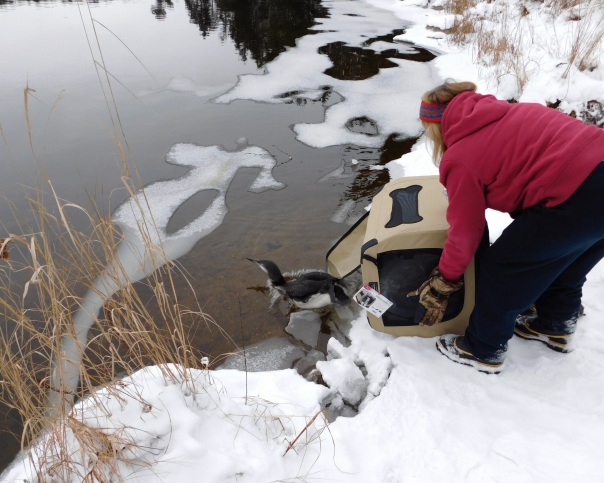 Most falls and early winters, I get calls about or receive into care, grebes and loons who have waited til the last minute to migrate. The ones I receive in are often young birds and birds that are not in the best of shape. So when Chris from the MNR called me last week about a loon that a kind person with an air-boat had rescued on a newly frozen body of water, I wasn’t surprised. The difference this time was that the loon had mistaken a patch of clear black ice as water and did a hard landing. Once down, being a loon, it was unable to take off again and was slowly freezing. Did I mention the temperatures were in the -30 c range, with windchill on top of that? Albert took the bird home, warmed it up and got a hold of Chris who in turn called me. Chris and I examined the young loon, and could not see any noticeable injuries and deemed it releasable if we could find a suitable patch of open water. But the cold snap was to continue for a few more days…
Most falls and early winters, I get calls about or receive into care, grebes and loons who have waited til the last minute to migrate. The ones I receive in are often young birds and birds that are not in the best of shape. So when Chris from the MNR called me last week about a loon that a kind person with an air-boat had rescued on a newly frozen body of water, I wasn’t surprised. The difference this time was that the loon had mistaken a patch of clear black ice as water and did a hard landing. Once down, being a loon, it was unable to take off again and was slowly freezing. Did I mention the temperatures were in the -30 c range, with windchill on top of that? Albert took the bird home, warmed it up and got a hold of Chris who in turn called me. Chris and I examined the young loon, and could not see any noticeable injuries and deemed it releasable if we could find a suitable patch of open water. But the cold snap was to continue for a few more days…
So, into my basement (where I have overwintered beavers and other tender critters) went the loon. A local bait fisherman set me up with several pounds of culled/dead/dying minnows plus a few live wiggly ones to entice the loon. This chunky monkey was eating about 2 pounds or maybe about 8 dozen minnows a day, so I am sure this will help it once released to survive until it gets its wits about it again.
As soon as we heard the weather was breaking to a balmy single digit, we arranged its release. Chris had already scouted out a few suitable spots, bless his soul.
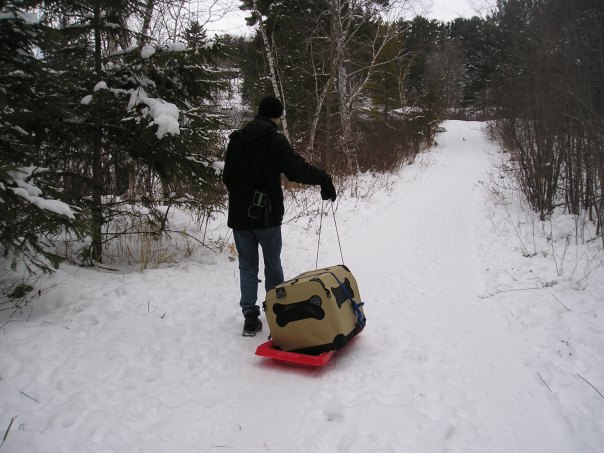
Had lots of strange looks from the dog walkers on the trail. They must have thought we had the laziest dog ever.
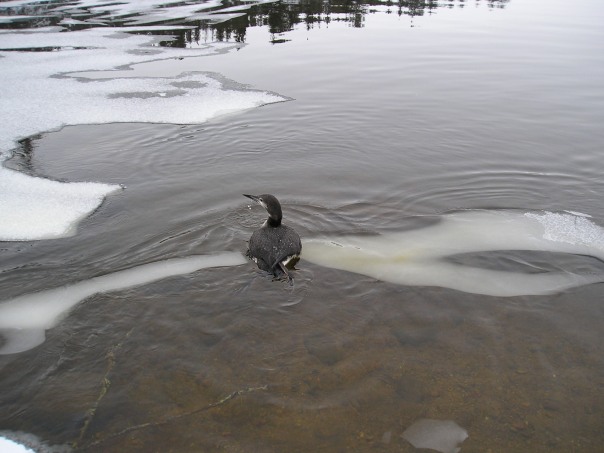
and just a small barrier…no problem for this little ice breaker…
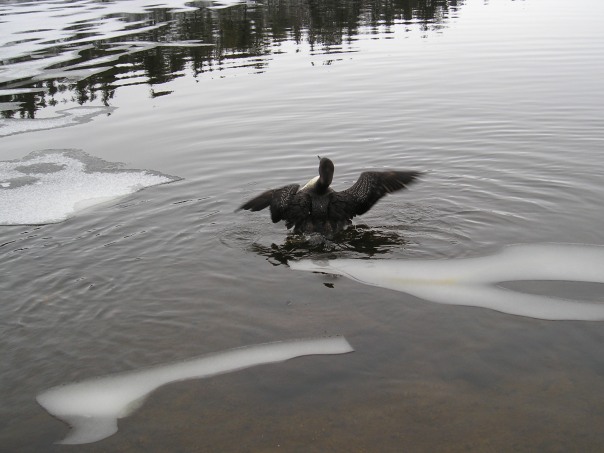
“I’m free…I’m free!”
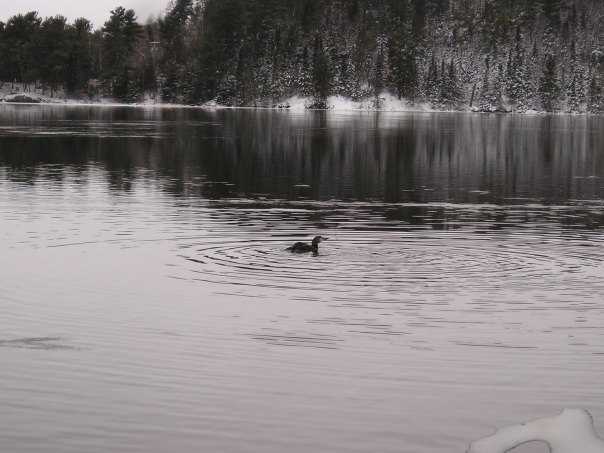
Now to preen the human cooties off me….
Hopefully, once preened, cleaned and it’s natural compass kicks in, this one will take off to the coast or somewhere more suitable for the winter. If not, there should be sufficient food in the river for it to survive til spring.
I usually get these late migrators into care after we get the first snows, and our highways are wet and dark, just like rivers would look from the air. Grebes and loons must think they are open rivers and crash land. Most do not make it, as they are quickly run over on the busy highways, but I have had a few successful rehabs after wonderful caring people have bothered to stop and rescue them. This is often a dangerous thing to do on busy highways, so I hope they always take their own safety into consideration first.
But thanks to a great group of people, this one has a very good chance of surviving its ordeal.
